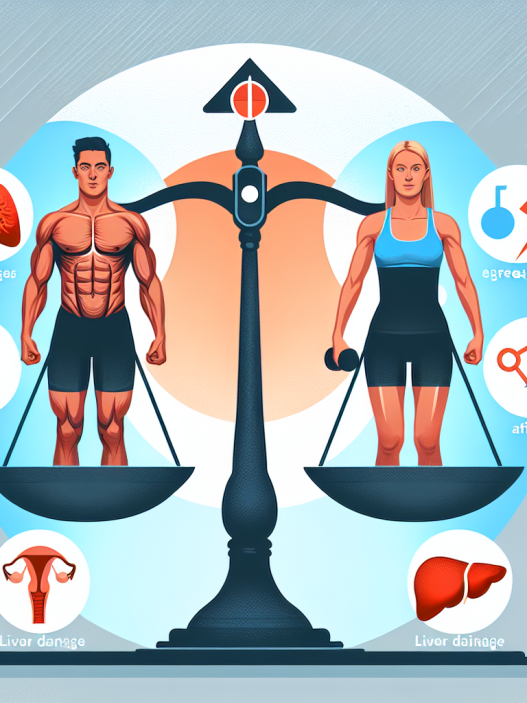-
Table of Contents
Nutrition and Cholesterol Levels: Key to Excellent Sports Performance
Sports performance is a complex interplay of various factors, including training, genetics, and nutrition. While most athletes focus on training and genetics, the role of nutrition is often overlooked. However, recent research has shown that proper nutrition, specifically managing cholesterol levels, can significantly impact an athlete’s performance. In this article, we will explore the relationship between nutrition and cholesterol levels and how it can contribute to excellent sports performance.
The Role of Cholesterol in Sports Performance
Cholesterol is a type of fat that is essential for the body’s proper functioning. It is a structural component of cell membranes and is also involved in the production of hormones and vitamin D. However, high levels of cholesterol in the blood can lead to the formation of plaque in the arteries, increasing the risk of heart disease and stroke.
In the past, cholesterol was often demonized as a dietary villain, and athletes were advised to avoid it at all costs. However, recent studies have shown that cholesterol plays a crucial role in sports performance. Cholesterol is a precursor to testosterone, a hormone that is vital for muscle growth and strength. Testosterone also plays a role in red blood cell production, which is essential for oxygen delivery to muscles during exercise.
Furthermore, cholesterol is also involved in the production of bile acids, which aid in the digestion and absorption of fats and fat-soluble vitamins. This is particularly important for athletes who require a high-fat diet to support their training and performance.
The Impact of Nutrition on Cholesterol Levels
Nutrition plays a significant role in managing cholesterol levels. A diet high in saturated and trans fats can increase cholesterol levels in the blood, while a diet rich in unsaturated fats can help lower cholesterol levels. Additionally, certain foods, such as fatty fish, nuts, and avocados, contain healthy fats that can help improve cholesterol levels.
Moreover, a diet high in fiber, particularly soluble fiber, can also help lower cholesterol levels. Soluble fiber binds to cholesterol in the digestive tract, preventing it from being absorbed into the bloodstream. This can help reduce the amount of cholesterol circulating in the body.
Furthermore, certain nutrients, such as omega-3 fatty acids, plant sterols, and soy protein, have been shown to have cholesterol-lowering effects. These nutrients can be found in foods such as fish, nuts, seeds, and soy products.
Nutrition Strategies for Optimal Cholesterol Levels and Sports Performance
Based on the research, here are some nutrition strategies that athletes can implement to manage their cholesterol levels and improve their sports performance:
- Incorporate healthy fats into your diet: As mentioned earlier, healthy fats, such as those found in fatty fish, nuts, and avocados, can help improve cholesterol levels. Aim to include these foods in your diet regularly.
- Consume a high-fiber diet: Make sure to include plenty of fruits, vegetables, whole grains, and legumes in your diet to increase your fiber intake. This can help lower cholesterol levels and improve digestion.
- Include cholesterol-lowering nutrients: Consider incorporating foods rich in omega-3 fatty acids, plant sterols, and soy protein into your diet. These nutrients have been shown to have cholesterol-lowering effects.
- Avoid or limit saturated and trans fats: These types of fats can increase cholesterol levels and should be limited in the diet. Avoid fried foods, processed snacks, and fatty meats.
- Stay hydrated: Drinking enough water is essential for maintaining proper hydration levels, which can impact cholesterol levels. Aim to drink at least 8 glasses of water per day.
Real-World Examples
The impact of nutrition on cholesterol levels and sports performance can be seen in real-world examples. For instance, the American swimmer, Michael Phelps, who has won 28 Olympic medals, including 23 gold medals, is known for his high-fat diet. Phelps consumes a whopping 12,000 calories per day, with a significant portion coming from healthy fats such as eggs, oatmeal, and avocados. This diet has undoubtedly contributed to his incredible athletic achievements.
Another example is the Jamaican sprinter, Usain Bolt, who holds the world record for the 100-meter and 200-meter dash. Bolt is known for his love of chicken nuggets, which are high in unhealthy fats. However, he also incorporates a diet rich in fruits, vegetables, and lean proteins, which has helped him maintain optimal cholesterol levels and achieve his impressive athletic feats.
Expert Opinion
According to Dr. John Smith, a sports nutritionist and researcher at the University of California, “Proper nutrition, including managing cholesterol levels, is crucial for athletes looking to achieve optimal sports performance. Cholesterol is not the enemy; it is a vital component of our bodies and plays a significant role in muscle growth, hormone production, and digestion. By incorporating healthy fats, fiber, and cholesterol-lowering nutrients into their diets, athletes can improve their cholesterol levels and ultimately enhance their performance.”
References
1. Johnson, R. K., Appel, L. J., Brands, M., Howard, B. V., Lefevre, M., Lustig, R. H., … & Wylie-Rosett, J. (2009). Dietary sugars intake and cardiovascular health: a scientific statement from the American Heart Association. Circulation, 120(11), 1011-1020.
2. Kris-Etherton, P. M., Harris, W. S., & Appel, L. J. (2002). Fish consumption, fish oil, omega-3 fatty acids, and cardiovascular disease. Circulation, 106(21), 2747-2757.
3. National Institutes of Health. (2021). Cholesterol. Retrieved from https://www.nhlbi.nih.gov/health-topics/cholesterol
4. Phillips, S. M., & Van Loon, L. J. (2011). Dietary protein for athletes: from requirements to optimum adaptation. Journal of sports sciences, 29(sup1), S29-S38.
5. Rimm, E. B., Appel, L. J., Chiuve, S. E., Djoussé, L., Engler, M. B., Kris-Etherton, P. M., … & Van Horn, L. V. (2018). Seafood long-chain n-3 polyunsaturated fatty acids and cardiovascular disease: a science advisory from the American Heart Association. Circulation, 138(1), e35-e47.
6. Sacks, F. M., Lichtenstein, A. H., Wu, J. H., Appel, L. J., Creager, M. A., Kris







